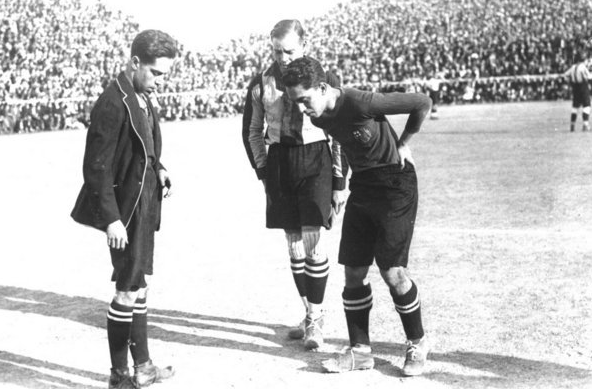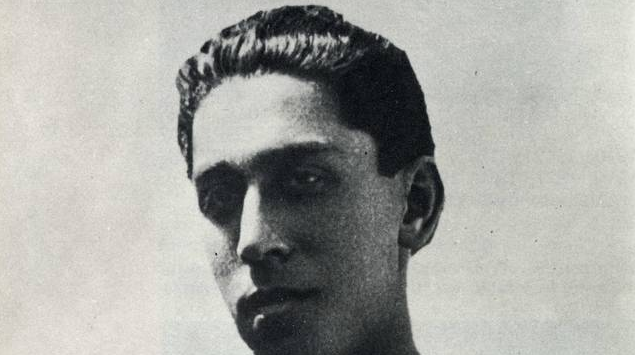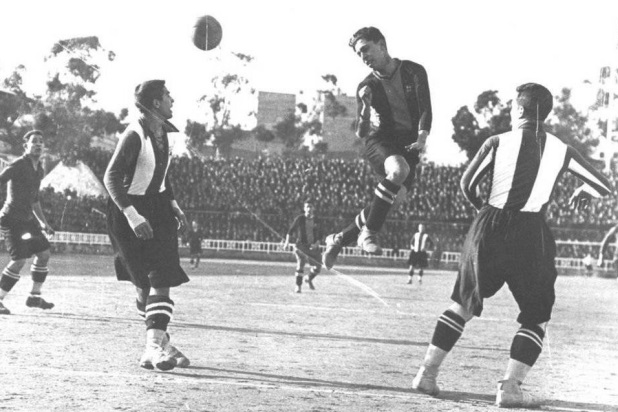Dissecting Paulino - Barça’s first and the Philippines’ last goalscoring machine
Dissecting Paulino - Barça’s first and the Philippines’ last goalscoring machine

Dissecting Paulino - Barça’s first and the Philippines’ last goalscoring machine
He is, alongside Hidetoshi Nakata and Ji-Sung Park, one of the finest footballers the Far East has given to the world. Chronicles of that time describe him as a skilful forward; thin, but strong-legged. Paulino Alcántara, product of the marriage between a Spanish soldier and a Filipina, was born in Iloilo City, the Philippines, on 1896; two years prior to the independence of the archipelago from Spain and subsequent occupation by the U.S.
Although registers from the era don’t give away a precise date, Alcántara moved to Barcelona alongside his family at the beginning of the 20th century; being that same city where he started and ended his footballing career. But what’s so remarkable about him?
He still is FC Barcelona’s all-time top goalscorer: 369 goals in 357 matches. And you may ask: isn’t Messi their top scorer? Yes, he is Barcelona’s most prolific scorer in official matches (340 goals up to the date this article is published), and he may well shatter Alcántara’s record this season. Nevertheless, we shouldn’t scorn Paulino’s achievement, mainly because during his time friendly matches were the rule while official competitions were the exception.
Alcántara also holds the record of being the youngest player in history to start an official match for the ‘blaugranes’ and for any club in Spain: 15 years, 4 months and 18 days old. If that isn’t enough, Paulino was the first and original 'romperedes’ (net-breaker); nickname given to him after breaking the net with a fiery strike during a friendly match in Bordeaux against the French national team. Long story short, Alcántara was Barcelona’s first superstar, and one of the first in Spanish and world football.
When he arrived into the Catalan capital, he was just a kid. His family were fleeing the turmoil from the Filipino independence and U.S. occupation brought along. Paulino began playing for an amateur team – called FC Galeno. That squad, formed mainly by health workers, was the first step in the Spanish-Filipino wonderkind’s footballing career. He joined the team after a physician whom he assisted (Paulino’s first formal job) discovered the precision and power he gave to every shot. This way, Paulino started becoming the conversation topic in every football pitch throughout the city.
In Belle Époque Barcelona news spread swiftly, which was how Joan Gamper, FC Barcelona’s founding father and coach, heard about the promising Asian youngster. Gamper attended a FC Galeno match to watch the prodigy in action. The rumours were true after all.
Impressed by Alcántara’s skills, Gamper approached him with a contract. Paulino didn’t think it twice and signed right away. That same weekend, the Filipino striker made his debut with Barça. The match was for the Campionat de Catalunya (the Catalan Championship) against Català SC. Barcelona won 9-0 with a hat-trick from the new signing. Gamper had, indeed, an eye for success
Alcántara played for Barcelona from 1912 to 1916 and from 1918 to 1927. Alongside other greats like Romà Forns, Francisco Bru and Jack Greenwell - and coached by Mr. Gamper - the blaugranes won one Copa del Rey and two Campionats de Catalunya.
However, in 1916 the Alcántara family decided to move back to Manila. Paulino asked Mr. Gamper if he could return to his homeland, to what the Swiss chairman answered positively under one condition: if he ever returned to Spain, he had to play for Barcelona. Alcántara agreed and moved back to the archipelago. In Manila, he represented his local club Bohemian FC, where he won two Filipino Championships.
During his stint at home, Alcántara wore the colours of the Filipino national team that attended the 1917 Far Eastern Games in Tokyo. An inspired Paulino beat Japan 15-2; being that match the Philippines’ biggest victory in its history. The team of “the thousand islands” - led undoubtedly by Alcántara - reached the final against a Chinese side that was everything but Chinese, since most players were European expats living in Shanghai, Canton and Hong Kong.
The referee ended the match before the final whistle, mainly because of the aggressive and unfair play the Filipinos were allegedly committed against the “Chinese” side. The Philippines’ silver medal in that tournament is the only piece of silverware the country has achieved in football. Alcántara also represented the unofficial Catalan national team and Spain. We have to remember that during those times there was no limit to the amount of national teams a player could represent.
Alcántara returned in 1918 to Barcelona, thanks to a letter from the Barça board asking him to come back. Curiously but to no surprise, during Alcántara’s two year absence, the club didn’t lift a single trophy. Back in the Mediterranean city, Paulino also resumed his medicine studies at Barcelona University. He wanted to be a physician after his footballing career and he genuinely had a passion for that field of study.
However, his studies didn’t affect his performances on the pitch. From 1918 to 1927, he was part of Barcelona’s first “Dream Team”. During those nine years, he played alongside other figures such as Emilio Sagi Liñan, Josep Samitier, Ricardo Zamora and Félix Sesúmaga; besides being coached by former teammate Jack Greenwell. Later on, Hungarian Jesza Poszony, Englishman Ralph Kirby, and Austrian Jack Dumby managed that same team.
Many players came and went through the dressing rooms of the Camp del Carrer Indústria and Les Corts – Barça’s first footballing grounds; but Paulino remained. Alcántara was still the man to follow on the pitch and their most skilful player. During his second stint, he won 4 Copas del Rey and 8 Catalan Championships. During Barça’s first epoch of domination, Alcántara shone with his own light. He missed the chance to play for Spain during the 1920 Antwerp Olympic Games, due to his final university exams. With Spain he made his debut in 1921 and his last games was in 1923. With La Roja he wasn’t much of a net-breaker: he only scored 6 times.
During a tour Barcelona made throughout the UK, one person described Paulino’s talents spot on. The responsible was Herbert Chapman, Arsenal’s manager extraordinaire, who defined Alcántara as “a ruthless striker, with gunpowder in his feet. He does things with the ball we haven’t seen over here.”
On July 5th, 1927, Alcántara retired from the sport. His testimonial match sided Barcelona against the Spanish National Team; playing a half for each side.
Alcántara had, after retirement, a life of lights and shadows. He dedicated himself to medicine, becaming a renowned urologist at a private clinic in Barcelona. He even was member of the directive board of FC Barcelona from 1931 to 1934. However, when the Spanish Civil War raged on, Alcántara, who sympathised with Franquist ideals, joined the corps during the conflict. He became Medical Lieutenant for Franco’s forces until 1940. In 1951, possibly as a form of gratitude from Franco for his services during the war, he became the manager of the Spanish national team. He managed the national side for 3 matches: one victory and two ties.
When he passed away in 1964, his coffin was carried by Barça’s legends Samitier and Zamora through some parts of the city. The blaugrana fandom mourned their first superstar who, ironically nowadays in politically charged Barcelonism, was a self-proclaimed fascist. Buried in the Les Corts cemetery, his grave still lays there. Forgotten.
Alongside boxer Manny Pacquiao, Paulino Alcántara is the most talented sportsman the Philippines has given to the world. There’s no question his ability was ahead of its time, as there’s no question that his political stance was quite debatable, especially looking at it in hindsight. He was a complex character that was able to please Franquists and Catalan Nationalists at the same time, in different fields.
Ironic? Paradigmatic? Treason? You decide.
This article is an AFR debut from Gustavo Gutiérrez-Mercado based in Mexico City. You can follow him on Twitter @ElGustau. Comments below please.









